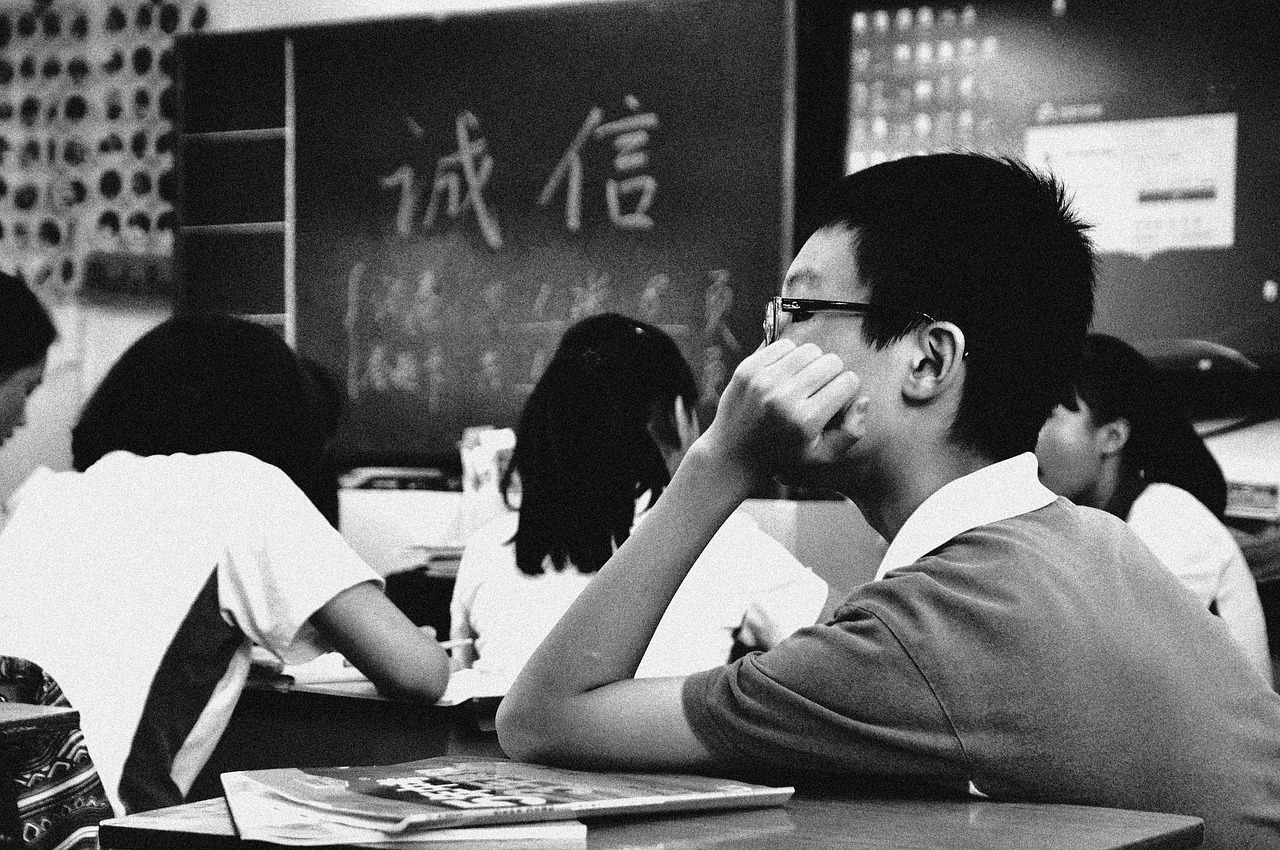The Best O Level Chinese Tuition in Singapore

Tutor City prides itself on having a large database of highly qualified Chinese tutors with years of experience. As such, Tutor City has one of the best Chinese tuition classes in Singapore. Our tutors are more than able to help their students improve their linguistic abilities by imparting their expert knowledge, tips, and techniques to ace their Chinese examinations.
Why do you need O Level Chinese Tuition?

Chinese has always been a thorn in the side of many students in Singapore as it is a difficult language to master without regular practice and diligent learning. Moreover, there is a steep bell curve for Chinese examinations which may put students under a lot of undue pressure and stress. As such, many students find themselves dreading their Chinese examinations.
By engaging a Tutor City Chinese tutor, students will get regular practice in the language, with personalised guidance from the tutor on how to improve. This is far better than having to merely rely on online resources, as a tutor can discern the strengths and weaknesses of every student and give them advice on how to get better at the subject.
The Cost of O Level Chinese Tuition
The average hourly fees for O Level Chinese tuition ranges from $35 per hour to $100 per hour, depending on the tutor's qualifications, experience, and the level to teach.
|
Tuition Rates |
Part-Time |
Full-Time |
Ex/Current |
|
Secondary 1 |
$35 - $50 |
$55 - $65 |
$70 - $100 |
|
Secondary 2 |
$35 - $50 |
$55 - $65 |
$70 - $100 |
|
Secondary 3 |
$35 - $50 |
$60 - $70 |
$75 - $100 |
|
Secondary 4/5 |
$35 - $50 |
$60 - $70 |
$75 - $100 |
1. Includes students in polytechnics, universities and graduates tutoring part-time.
2. If your child has special needs, go to our SPED page to understand the certifications and fees that SPED teachers are quoting.
Outline of O Level Chinese Tuition
Mastery in understanding textual analysis
Mastery of using various devices and writing techniques
Ability to write well in various contexts and with various techniques
Ability to evoke emotions in writing and speaking
Advanced understanding of linguistic nuance
Mastery in inference
Hurdles Faced by O Level Chinese Students

Stress over impending examinations
Many students may feel overwhelmed given their impending Chinese examinations, as they often leave studying for Chinese to the last minute. However, like any language, mastery of Chinese requires regular practice and use of the language, and cramming is an ineffective method to study Chinese. As such, students may feel worried and anxious prior to their examinations, especially if there is an oral component involved.
Time management during exams
Students may struggle with allocating time to the various questions they will encounter during the exams. When an exam involves the writing of essays, students may be unsure of how much time to spend on a certain question, neglecting other questions. This may cost them marks unnecessarily, as if they had practiced answering questions regularly, they would have better practice allocating their time to the different questions.
Inability to answer comprehension questions
Comprehension questions require students to have a good range of vocabulary and the ability to “read between the lines”, which involves evaluating the passage in its context to find out what the writer means when he/she uses certain words. Students must get a lot of practice and acquire certain skills to be good at answering comprehension questions, which increase in complexity as the student gets older.
Difficulty in writing Chinese essays
Writing essays in another language may be challenging for some students, as they do not often write essays in Chinese. As such, students need to be aware of the sentence structure, grammar, and appropriate vocabulary to use for each topic. Different topics will require different words and contexts, which students must appreciate. Students require regular practice writing essays before they can become fluent in it.
The Importance of Engaging an O Level Chinese Tutor

Helping students during exam preparation
A Chinese tutor could help students feel more confident for their exams by teaching them how to answer their exam questions. As every exam system has their own style of asking questions, a Chinese tutor is responsible for ensuring their students are prepared for their examinations. Students should enter the exam feeling like they have seen the exam questions before.
Helping students read between the lines for comprehension
Most Chinese students will struggle with answering comprehension questions due to their inability to “read between the lines”. A tutor could contextualise the passage for the student, ensuring that the student is able to make educated guesses if they are not sure of the meaning of certain words during the examination. Furthermore, a tutor could guide the student in writing out their answers to ensure the student gets to the point and does not ramble.
Improving a student’s sentence structure and vocabulary
A Chinese tutor could help the student improve their sentence structure and vocabulary. Writing sentences in Chinese is unlike writing sentences in English, as there is a different order of the subject and object in Chinese sentences. As such, a common mistake students make is to directly translate Chinese sentences to English, which could make them lose unnecessary marks. Furthermore, students need to read widely to have a wide range of vocabulary.
Motivating students to study for Chinese
Another important aspect of Chinese tuition is the motivation it gives students to study for Chinese. Students may feel burdened by other aspects of their curriculum such as their other subjects and CCA commitments, leaving them with little time to study for Chinese. A Chinese tutor could motivate students to study for Chinese and the tuition session could be used as a dedicated session to practice reading and writing the language.
Good Qualities of an O Level Chinese Tutor

Possesses the requisite experience and knowledge
A good Chinese tutor will have the requisite experience and knowledge to teach students of the same level. All our tutors at Tutor City have a good track record, demonstrating that they are more than able to coach their students in the Chinese language. Tutors who are experienced will also be able to discern the student’s strengths and weaknesses, which is useful if the student only has a short time left to prepare for their examinations.
Patience in teaching a language
Learning a language is often not straightforward, and a good tutor requires a high level of patience to teach students, especially if they are not all at the same skill level. Some students may lack the requisite amount of practice needed to master the Chinese language, and the tutor must patiently explain the concepts and guide the student during practice.
Experience with Chinese resources
Furthermore, a good tutor should be able to recommend the student good Chinese resources so that the student can practice the language in their free time. It is important that the student gets regular practice even outside of the weekly Chinese tutoring sessions held by the tutor, and they ought to have the best resources to practice with. Tutors will also be familiar with the student’s learning style and should be able to recommend resources which are catered to how the students learn best.
Discerning eye
A very important quality of a good Chinese tutor is a discerning eye, so that they can recognise the student’s strengths and weaknesses. Knowing where the student is lacking enables the tutor to target those areas first so that the student can prepare in time for their next examination. Further, a good tutor will also give the student tips on how to develop their strengths so that they can take their mastery of the Chinese language to the next level.
Testimonials from O Level Chinese Students and their Parents
“Benson has been great in helping us find a Chinese tutor for my child. There were initially some hiccups in getting a tutor to suit our timing, but they were solved fast and efficiently. The tutor introduced by Benson was kind and patient, and my child benefitted from it!”
- Miss Lishan
“Tutor City had a quick turnaround time and provided a shortlist of tutors who fit my requirements. The communication was clear, and the tutors are high calibre. So far, I am a happy customer!”
- Michelle Lo
Resources for O Level Chinese
Duolingo
Pleco Dictionary
The Full Guide to O Level Chinese
Top Tips for Taking on the O and N Level Chinese Exams
Engage a Tutor City O Level Chinese Tutor today!

As learning Chinese as another language is a highly valuable skill, students should recognise the importance of doing well in the subject. Hence, it would be beneficial for the student to engage a Tutor City Chinese tutor who is experienced and patient so that the student can not only survive, but thrive in their Chinese examinations.
Engage a Tutor City O Level Chinese tutor today!
Frequently Asked Questions
What is Chinese O Level?
At the end of their secondary school learning, students will undertake the O Level Chinese Examination which consists of 3 main components: Writing (Paper 1), Comprehension (Paper 2), and Oral Communication and Listening Comprehension (Paper 3).
Is Chinese counted in O Levels?
If you are offering Higher Mother Tongue Language, the O-Level Mother Tongue Language (Chinese / Malay / Tamil) taken in Secondary 3 will not count towards the total number of O-Level subjects that you register for O- Level in Secondary 4.
How to study for O Levels Chinese?
Students need to practice writing compositions with good vocabulary. Furthermore, students need to practice answering comprehension questions. Lastly, students must practice speaking Chinese regarding a variety of topics to prepare for their oral exams and listening exam.
Can you retake O Level Chinese?
It is possible to retake O Level Chinese if you fail it on the first go.
Is O Level important in Singapore?
The Singapore O Level is largely demanding and rigorous, as students will need to juggle a higher number of subjects as compared to primary school. Moreover, the difficulty of the subjects in O Level increases exponentially by the time students get to Secondary 4.
Can you go JC if you fail Chinese?
To go to Junior College, students must pass their mother tongue (with a minimum grade of D7).
